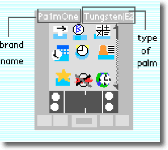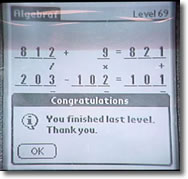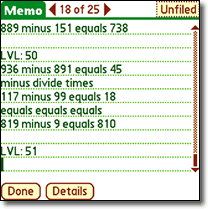National Educational Computing Conference '06
 Monday, June 19, 2006 at 8:12AM
Monday, June 19, 2006 at 8:12AM  The 2006 National Educational Computing Conference (NECC) is just around the corner. July 5-7 thousands of educators will meet in San Diego to attend sessions, visit vendors, and socialize.
The 2006 National Educational Computing Conference (NECC) is just around the corner. July 5-7 thousands of educators will meet in San Diego to attend sessions, visit vendors, and socialize.
I will be participating in a panel discussion during the Special Interest Group for Technology Coordinator's Membership Breakfast. The theme is The Role of Technology Leadership in a Changing Educational Landscape. Other panel members include David Warlick and Will Richardson. We'll be discussing blogging, podcasting, and wikis. The breakfast is from 7:30 am until 10:00 and costs $15 and will be located in SDCC 11A/B.
Also, I will be attending the Special Interest Group for Handheld Computing's (SIGHC) Annual Business Meeting in SDCC 7B. This is a great time to gather with others interested in handheld computing. The meeting is somewhat informal and will be Thursday, July 6 from 4:45 until 6:00. After the meeting, I propose that handheld (and/or podcasting) enthusiasts meet at Rock Bottom (half a mile from the convention center at 401 G Street) at 6:30 for dinner and socializing. Mike Curtis and I will be attending! If you plan to be there, please email me ASAP so we know how many to expect. With email, if there are any updates or changes, I can let you know.
I'll be blogging about what I learn at NECC. Like last year, most of my sharing will be done in the weeks after the conference. Expect lots of audio from NECC to be included in Soft Reset podcasts. Also like last year, I have orange stylus/pens to give away, so find me at NECC and ask for one.
If you plan to blog about the conference, please read David Warlick's advice about Blogging a Conference, including tagging your posts "necc06" so that people can find them easily through Technorati.









 How'd you like to give an instant survey in your classroom? There's new Palm software that can do just that:
How'd you like to give an instant survey in your classroom? There's new Palm software that can do just that: 

 Sixth graders Steve and Richard wrote about
Sixth graders Steve and Richard wrote about  Richard, one of the writers of the
Richard, one of the writers of the  The 2006
The 2006 